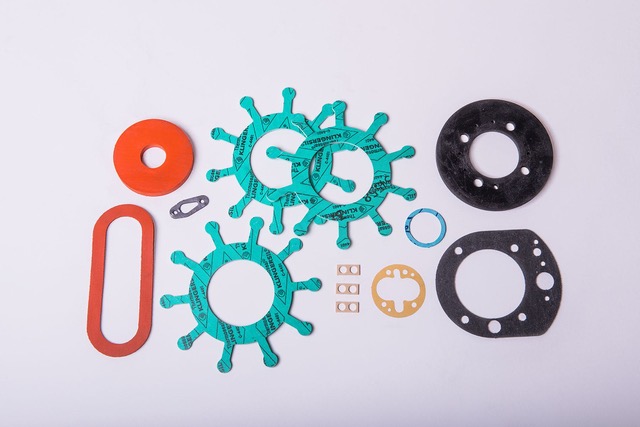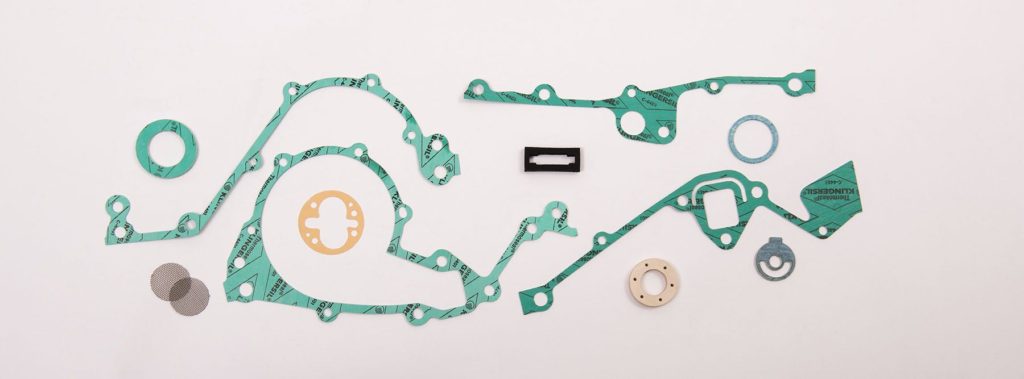Maximizing manufacturing efficiency requires a keen understanding of custom cut gaskets. These unassuming components manage pressure, control heat, and prevent leaks. Not only that, they play a key role in ensuring the seamless operation of manufacturing processes. Therefore, carefully selecting materials for these gaskets is paramount, as they directly influence their ability to ensure efficiency and reliability.
In this context, waterjet cutting and Precision Cutting Service are the preferred solution for crafting custom cut gaskets. Because of their unparalleled ability to precisely cut any gasket material in various forms, sizes, and thicknesses, thousands of companies nationwide rely on them of all their gasket needs.
Their versatile waterjet cutting systems supports applications across industries, including food and beverage, aerospace, transportation, petroleum refining and more.
Here’s a closer look at the best options for crafting custom cut gaskets.
Best Materials for Custom Cut Gaskets
Rubber:
- Applications: Versatile, suitable for various environmental conditions.
- Materials: Rubber molding compounds, closed-cell sponge rubber, open-cell sponge rubber.
Compressed Non-Asbestos:
- Applications: Enhanced temperature and pressure performance.
- Materials: Fiberglass or aramid fibers combined with rubber.
Cork:
- Applications: High compressibility and flexibility; resistant to fuels, oils, and solvents.
- Materials: Cork combined with rubber, such as nitrile or neoprene.
Electrical Insulation:
- Applications: Lack of electrical conductivity for electrical applications.
- Materials: Mylar, Viton, Kapton, Vamac AEM.
Fiber:
- Applications: Encompasses various fiber-based materials.
- Materials: Cellulose fiber, insulating fiber, vegetable fiber, synthetic fiber.
Foam:
- Applications: Ideal for trapping gas within interconnected cells.
- Materials: Custom foam gaskets and seals.
Felt:
- Applications: Wool-based material suitable for various uses.
- Materials: Custom die-cut felt products.
Flexible Graphite:
- Applications: Withstand high temperatures.
- Materials: Grafoil flexible graphite gaskets.
Plastics:
- Applications: Diverse applications with enhanced characteristics.
- Materials: Custom plastic gaskets, seals, and washers.
High-Temperature Materials:
- Applications: Designed to withstand exposure to high temperatures.
- Materials: High-temperature gaskets.
Key Considerations for Choosing the Right Material for Your Custom Cut Gaskets
- Temperature: Consider the expected temperature range.
- Pressure: Assess the anticipated pressure range.
- Media: Identify the materials the gasket will be exposed to.
- UV and Ozone Exposure: Determine exposure to UV radiation and ozone.
- Product Standards: Check for industry-specific product requirements.
- Industry Standards: Ensure compliance with industry-specific standards.
Tips for Choosing the Best Gasket
Gasket Material
- Metallic Gaskets: Ideal for high-pressure applications.
- Non-metallic/Soft Gaskets: Affordable and suitable for low-pressure applications.
- Semi-Metallic/Composite Gaskets: Blend of metal and non-metal materials for versatility.
Evaluating Environment
- Assess fluid temperature, corrosive properties, and pressure.
Types of Gaskets
- Explore jacketed, solid, spiral wound, and kammprofile gaskets.
Consulting a Gasket Design Engineer:
- Seek expert guidance for custom or specialized applications.
Testing for Performance
- Ensure gaskets meet safety standards through rigorous testing.
Choose the Right Manufacturer
Founded in 1994, Precision Cutting Service, provides the experience and expertise you need. Contact them today via their website, or email sales@precisioncutting.com, or fill our their quote request form, or simply call 912-233-9550.



